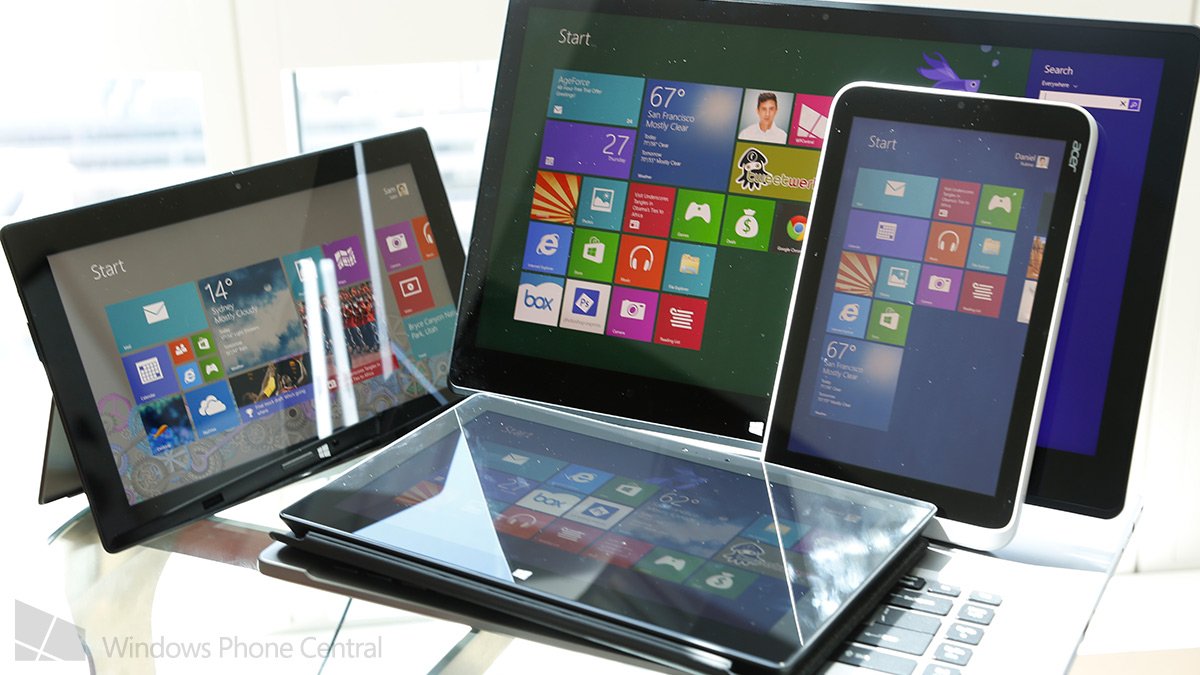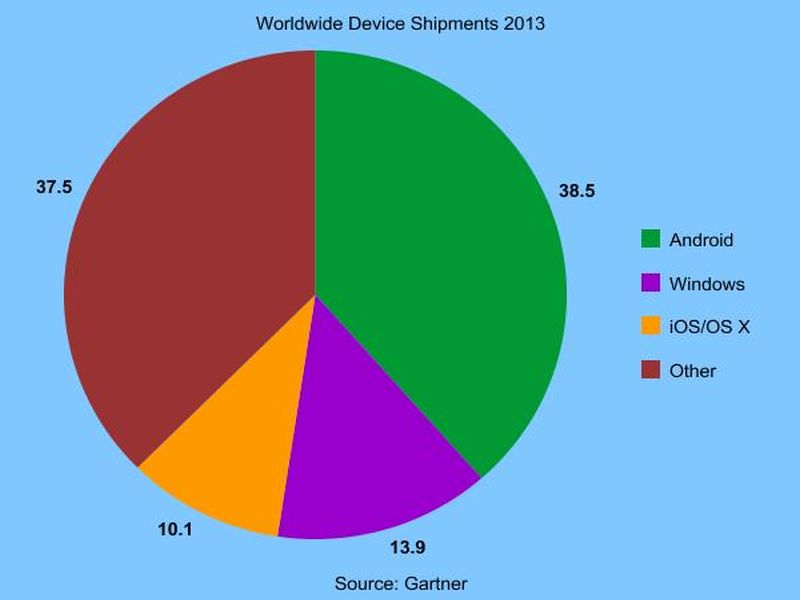Microsoft admits that Windows is only on a small percentage of devices

Microsoft was a little humble today as it agreed with recent statements from the research firm Gartner that the Windows platform as a whole can only claim to be installed on a small percentage of the total worldwide device market, which include PCs, tablets and smartphones.
Windows is by far the most installed operating system on desktop and notebook PCs, but today Microsoft used data that Gartner released last week as part of its Worldwide Partners Conference keynote that offered a broader device picture. According to Microsoft, Gartner's numbers showed Windows installed on just 14 percent of devices in 2013. In fact, a more exact percentage is 13.9 percent, with the Windows platform, including all versions of Windows PCs and Windows Phone, installed on 326 million devices out of 2.334 billion worldwide

Android was number one in 2013 with 38.5 percent and 898 million devices. Windows is second, followed in third by the combined total of iOS and OS X devices from Apple, which total 10.1 percent. Gartner has "other" platforms grouped together for 2013 with 37.5 percent. For 2014, Gartner believes Windows will be installed on 13.7 percent of all devices worldwide, but that number is expected to go up to 14.4 percent in 2015.
During his keynote address, Microsoft chief operating officer Kevin Turner told the WPC 2014 audience, " ... we have to have a new mindset. Because when you're in a 90+ percent share world, you have a 'protect and preserve' mindset. When you have a 14 percent share, you have to have a 'challenger' mindset."
Turner claimed that Microsoft will increase its total device market share with three factors in mind. One is offering market disruption, while another is making sure that Windows products are sufficiently different than their competitors. Finally, Turner said speed would be the third factor, as they get new versions out into the market faster. He even allowed for the fact that some of their efforts could fail but added, "... if we fail, we have to fail fast and learn fast. But do it, try it, fix it."
Based on Turner's statements, it would appear that Microsoft gets the message that it cannot rest on just dominating the PC market and that it needs to have Windows expand to other platforms, and it must do so both quickly and with enough differences to make it stand out compared to Google and Apple's offerings. What do you think of Microsoft's new attitude in the platform competition arena?
Source: Microsoft
All the latest news, reviews, and guides for Windows and Xbox diehards.

John Callaham was a former contributor for Windows Central, covering Windows Phone, Surface, gaming, and more.
